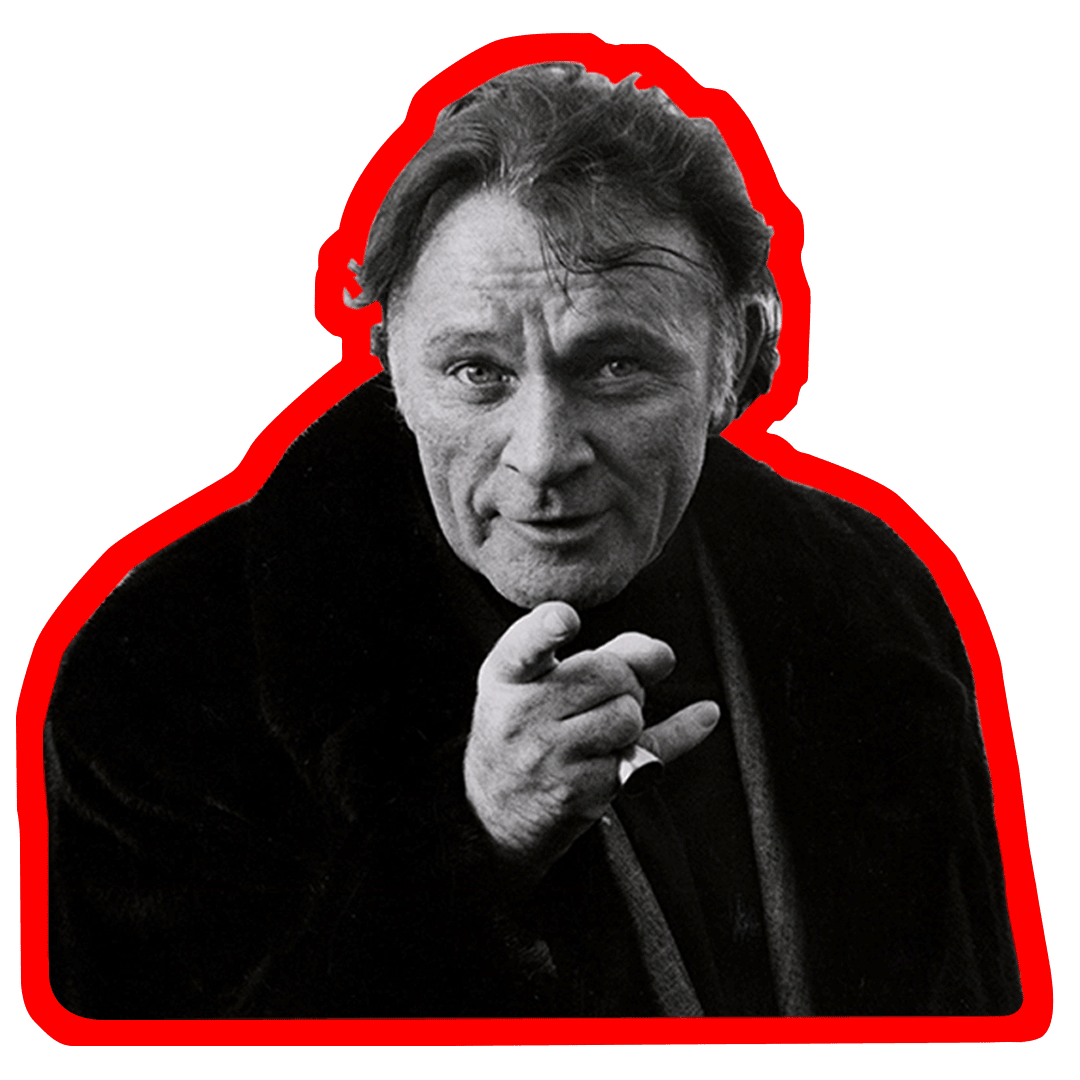Courtesy of Rhianon James Trowell.

This is the story of how Richie Jenkins, the boy from Pontrhydyfen, became Richard Burton, the master of the Shakespearean stage play.
Stage Life
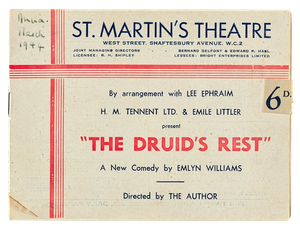
In 1943, Richard made his acting debut as a Welsh youngster in the play The Druid’s Rest after Philip Burton had seen an advertisement for Welsh actors in the Western Mail.
The Last Days of Dolwyn marked a milestone in both Richard’s career and personal life. It was his first film role and also brought Sybil Williams into his life. They were introduced by Emlyn Williams and were married within a few months.
Richard apparently sent a telegram back home on his wedding day on 5 February 1949:
Married this morning. Pity Wales.
Telegram from Richard, 5th February 1949
The last sentence referred to Wales losing in the rugby against Scotland on the same day!
In 1949, Richard landed his first major role on a London West End stage in Christopher Fry’s popular play The Lady’s Not For Burning.
Richard bought 40 tickets for his family from Wales and for the Afan Glee male voice choir to attend one of the performances! The production later enjoyed a successful run on Broadway in 1950.

Richard with John Gielgud and Pamela Brown in The Lady’s Not for Burning, Angus McBean Photograph. ©Harvard Theatre Collection, Houghton Library, Harvard University.
Richard and Sybil started married life in London where Richard was making his mark as an actor on both stage and screen. However they still made time to visit Wales, staying in Taibach.
On one Christmas visit Richard handed Sybil the end of a red ribbon and asked her to follow it to the corner of Caradog Street. Here she found her present a red convertible MG car!

Photographs of Richard and Sybil.


Richard Burton’s captivating voice became as famous as his face. It was at its finest when recorded for radio. In January 1954 Richard’s voice became part of broadcasting history when he played the part of First Voice in Dylan Thomas’ ‘Play for Voices’, Under Milk Wood.
Richard could only attend the last rehearsal on the day of recording. Despite having little time to prepare and recording ‘as-live’, Richard gave one of his most outstanding performances.
His voice was so sonorous and beautiful you felt something shift in the air around you.
Alec Nisbett, a young studio manager for the 1954 BBC production of Under Milk Wood
DoYourBestBurton
Learn how to sound like Richard Burton with Guy Masterson’s ‘Do Your Best Burton‘ masterclass.
To submit your own impression, simply tag @museumwales and use the hashtag #DoYourBestBurton.
DoYourBestBurton
Richard spoke about his own voice in connection with Wales...
I think it’s invested with small coal and rain or something – the voice is the voice of my people.
Richard Burton, Outlook, HTV, 1982
To hear his voice in action, listen to one of our specially curated Richard Burton playlists on Spotify…
In 1951 Richard was cast in a series of Shakespeare’s plays at Stratford Memorial Theatre. It had been Philip Burton’s ambition to see Richard on stage there and he helped him to prepare his role of Prince Hal in Henry IV. This performance was the making of Richard Burton.
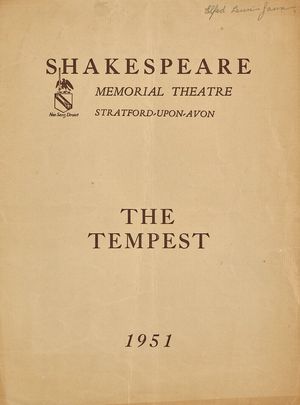
Following the success of Stratford, Richard Burton won lead roles in three Hollywood films but in 1953 he turned down a million dollar contract with Twentieth Century Fox. Instead he chose to star in a series of Shakespeare plays for £150 a week at London’s Old Vic Theatre.
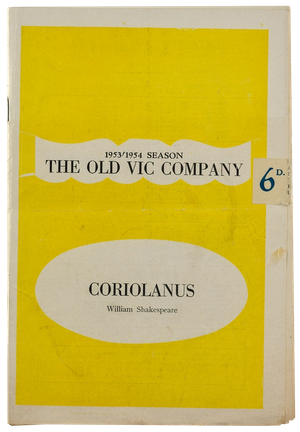

Richard as Hamlet with Clare Bloom as Ophelia. Edinburgh, August 1953 Angus McBean Photograph. © Harvard Theatre Collection, Houghton Library, Harvard University.
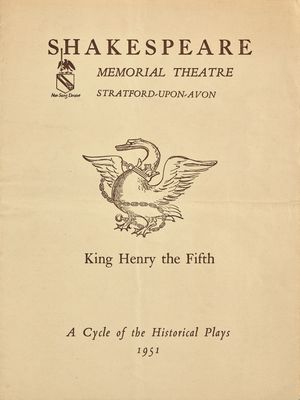
By 1954 Richard had played the longest running Hamlet the Old Vic had ever known. His performances filled the theatre, with VIPs like Winston Churchill attending - a story which Richard enjoyed telling.
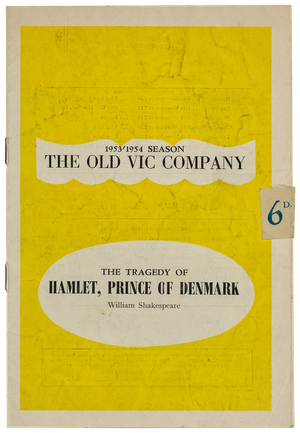
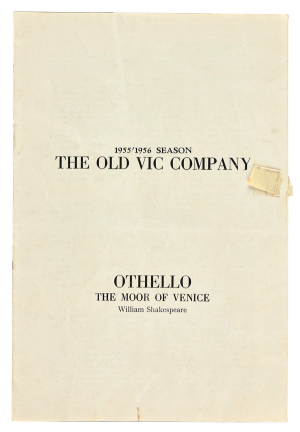
Richard made Switzerland his home from 1957, becoming a tax exile. His work from thereon was mainly outside the UK on stage and screen. In 1960 he was on Broadway playing King Arthur in the musical Camelot. The musical enjoyed enormous success and Richard’s star quality led to an approach to play Mark Antony in the mega-production Cleopatra.
For some reason English people adamantly believe that acting in the theatre is superior (what a funny word) to acting in the films or TV.
Richard’s Diary, 29 May 1969
Richard’s role as Mark Antony in the mega-production Cleopatra would change his life both professionally and personally forever.
Click the banner below to learn how Richard went from Hamlet to Hollywood.
